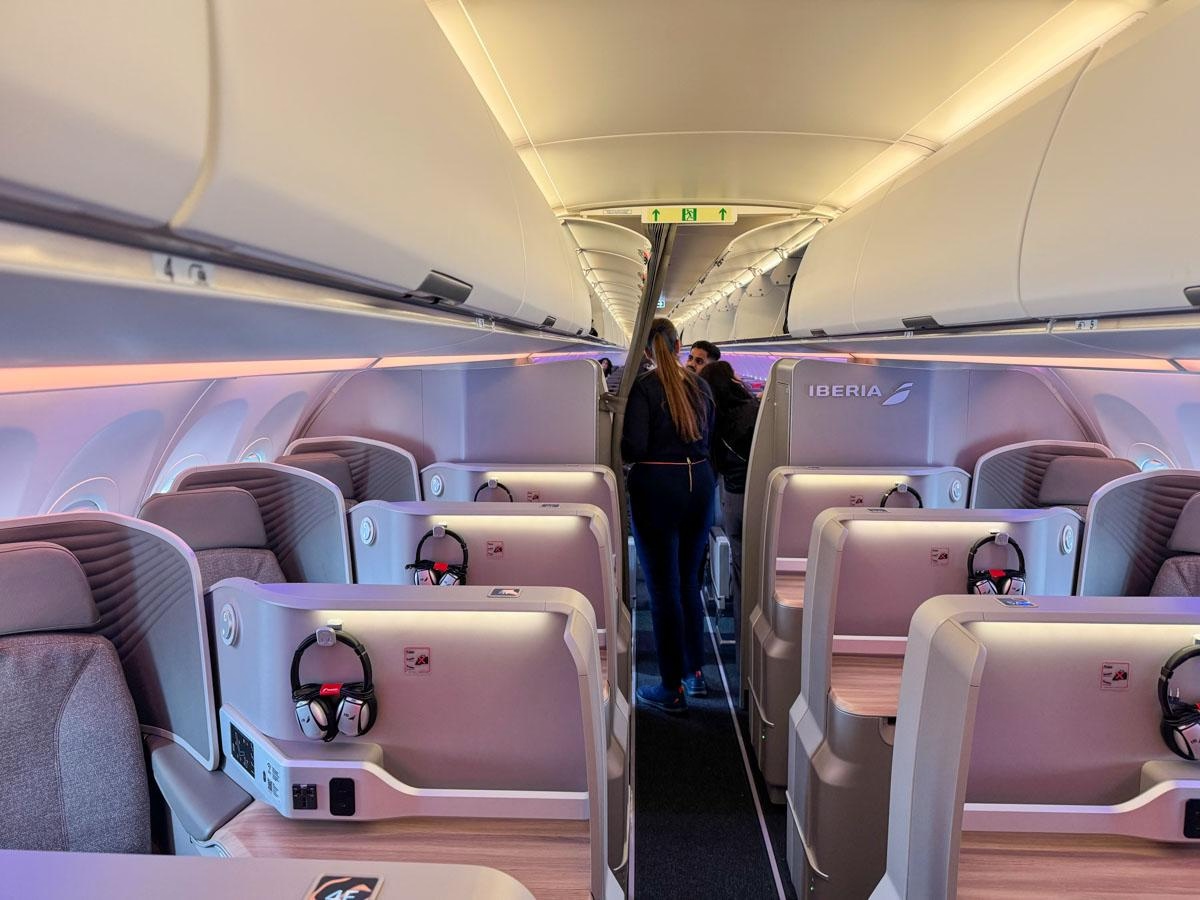AeroGenie — Seu Copiloto Inteligente.
Tendências
Categories
Iberia Invests $6 Billion in Airbus A350, A321XLR, and A330neo Fleet

Iberia Commits $6 Billion to Fleet Modernization with Airbus Aircraft
Spanish flag carrier Iberia has unveiled Flight Plan 2030, a comprehensive strategy centered on a $6 billion investment to modernize and expand its fleet. The plan aims to increase the airline’s long-haul widebody aircraft from 45 to approximately 70, while simultaneously replacing older short- and medium-haul jets with more fuel-efficient narrowbodies. Iberia is targeting profitability margins of up to 15 percent to underpin this ambitious transformation, which also encompasses operational, digital, and infrastructural enhancements designed to reinforce Madrid Barajas Airport’s status as a premier European hub.
Fleet Renewal and Market Dynamics
At the heart of Iberia’s renewal strategy is the acquisition of new Airbus aircraft, including the A350-900, A321XLR, and potentially the A330-900neo, all sourced from the International Airlines Group’s (IAG) recent orders. These additions will enable Iberia to broaden its intercontinental network while gradually phasing out older widebody models. According to ch-aviation data, Iberia’s current widebody fleet comprises 19 A330-200s, 10 A330-300s, and 22 A350-900s, operated both directly and through wet lease agreements with partners such as LEVEL, Wamos Air, and World2Fly.
On the narrowbody front, Iberia operates a mixed fleet including three A319s, 24 A320s, 18 A320neos, 13 A321s, 12 A321neos, and three A321XLRs. The airline plans to retire its aging A319, A320ceo, and A321ceo aircraft—averaging 18 to 20 years old—in favor of newer, more fuel-efficient A320neo and A321neo models. This transition aligns with Iberia’s broader decarbonization objectives, aiming to reduce fuel consumption and emissions across its European and regional routes. The carrier currently has outstanding orders for 14 A320neos, five A321XLRs, and nine A350s.
Iberia’s investment coincides with ongoing enhancements to the A330neo platform, including increases in maximum take-off weight, which may influence operational costs and maintenance requirements. The competitive environment remains dynamic, with airlines such as IndiGo planning to acquire an additional 30 A350s to support European expansion. Meanwhile, Starlux Airlines continues to expand its long-haul capabilities with A350-1000s, and Wizz Air is preparing to receive its first A321XLR despite previous delays. These developments highlight a vibrant market in which Iberia’s fleet investment positions it alongside other major carriers expanding their Airbus portfolios.
Historical Context and Fleet Evolution
Iberia’s fleet has undergone significant evolution over the decades. In the early jet age, the airline introduced the Douglas DC-8 for transatlantic services, followed by the Boeing 727 for European routes. The subsequent addition of Boeing 747-200s and DC-10s facilitated further long-haul growth, particularly across Latin America and North America.
The strategic pivot toward Airbus began in the early 1980s with the introduction of the A300B4. The 1990s saw the arrival of the A340-300 and later the A340-600, both instrumental in expanding Iberia’s international reach. The airline retired its last A340-300 in 2017 and phased out the final A340-600 in 2022.
As Iberia embarks on its most significant fleet renewal to date, the airline is positioned to enhance operational efficiency, sustainability, and competitiveness amid a rapidly evolving global aviation landscape.

Emirates Unveils Cabin Design for New Boeing 777X

Eighteen Years On, the Airbus A380 Remains Central to a $34 Billion Airline

How a boom in luxury airline seats is slowing down jet deliveries

Navitaire Outage Attributed to Planned Maintenance

Airbus Plans Record Delivery of 870 Aircraft in 2026

DigiYatra Debuts Outside Aviation at India AI Impact Summit

Vietnam Orders Strengthen Boeing’s Commercial Outlook

Airbus Signals Uncertainty Over Future A400M Orders

JobsOhio Awards $2 Million Grant to Hartzell Propeller for Innovation Center

Collins Aerospace Tests Sidekick Autonomy Software on YFQ-42A for U.S. Air Force CCA Program
